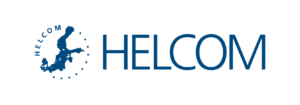Since most of our activities on land and at sea create pressures on—and changes to—the sensitive marine environment, mapping the extent and impact of these pressures is crucial for a legitimate picture of the state of the Baltic Sea. HELCOM, as a part of the forthcoming holistic assessment of the ecosystem health (), is speeding up work on assessing the impacts from human activities on the marine ecosystem, with a focus on their spatial distribution. A dedicated workshop to address this topic is held this week in Helsinki, Finland, as part of the HELCOM coordinated project, co-financed by EU. Impacts from human activities on the Baltic marine ecosystem, and the spatial distribution of the pressures, is the main focus of the workshop. Photo: Maritime Office in Gdynia The 2-day workshop will discuss the Baltic Sea Impact Index (BSII), first created for the Initial HELCOM Holistic from 2010. The Index is based on data sets that show the spatial distribution of human activities in the Baltic Sea, as well as pressures and ecosystem components. The ecosystem components include for instance the distribution of different fish, mammals and sea birds, as well as the key habitats. The Impact Index takes into account the sensitivity of the ecosystem components (using so-called sensitivity scores) of each assessed pressure. The results will show how key environmental pressures in the Baltic Sea are distributed spatially and where they coincide most strongly with sensitive parts of the ecosystem. In addition to assessments based on the Baltic Sea Impact Index being in focus of this week, the HOLAS II project will look into trends over time in the key pressures and the socioeconomic importance of human activities, as well as evaluate cumulative impacts on the seafloor using indicators. The workshop to support the development of the Baltic Sea Pressure and Impact index is held on 6-7 September 2016 in Helsinki, Finland and chaired by Samuli Korpinen, Finnish Environment Centre.. All the documents will be public after the workshop. * * * Note for editorsHELCOM is an intergovernmental organization made up of the nine Baltic Sea coastal countries and the European Union. Founded in 1974, its primary aims as a governing body are to protect the marine environment of the Baltic Sea from all sources of pollution, as well as to ensure safe maritime navigation. The official name of HELCOM is the Baltic Marine Environment Protection Commission; it is the governing body of the Helsinki Convention. The next HELCOM Holistic Assessment will give a comprehensive overview of the ecosystem health of the Baltic Sea. The first results are scheduled for release in mid-2017 and finalized by mid-2018. The update on the overall state of the entire Baltic Sea is worked on by the HOLAS II project (2014–18), which develops common concepts and methods for the status assessment based on core indicators; creates and tests the tools for aggregated results and, finally, performs assessments at a regional scale. The development of the assessment methods is supported by other projects such as and . * * * For more information, please contact:Ulla Li ZweifelProfessional SecretaryHELCOMTel. +358 46 850 9198Skype: helcom64E-mail: ullali.zweifel(at)helcom.fiJohanna LaurilaInformation SecretaryHELCOMTel: +358 40 523 8988Skype: helcom70E-mail: johanna.laurila(at)helcom.fi
HELCOM, as a part of the forthcoming holistic assessment of the ecosystem health (HOLAS II), is speeding up work on assessing the impacts from human activities on the marine ecosystem.

